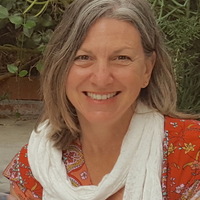Wendy Bilgen
Cleveland State University, Social Work, Department Member
- Wendy Bilgen is an Assistant Lecturer in the School of Social Work at Cleveland State University. She has lived betw... moreWendy Bilgen is an Assistant Lecturer in the School of Social Work at Cleveland State University. She has lived between Turkey and the United States for the past twenty five years and maintains a private counseling and consulting practice. Her Ph.D. in Organizational Leadership is from Eastern University and her dissertation was an autoethnographic study joining dialogical self theory and intersectionality with social justice leadership identity theories to explore how diverse, multifaceted personal identities interact with challenging power-filled contexts. Her scholarly interests relate to exploring the use of self-reflexive methodologies that might expand the capacity for empathic connection with others in the complex global settings they hope to change.edit
Research Interests: Expatriate and Spouse
In this autoethnographic account, I explore through creative analytic practice (CAP) how autoethnography has become a practice for spiritual connection. Inspired by Martin Buber’s I-Thou philosophy, I discuss how autoethnographic... more
In this autoethnographic account, I explore through creative analytic practice (CAP) how autoethnography has become a practice for spiritual connection. Inspired by Martin Buber’s I-Thou philosophy, I discuss how autoethnographic encounters have the potential to emulate what is characterized by Buber as encounters with an Eternal Thou. In Buber’s conceptualization, when an individual I encounters a Thou, in a dialogical relationship of mutual honor and embrace of shared humanity, an Eternal Thou encounter is experienced. The qualities of the I-Thou encounter are mirrored in autoethnography as the autoethnographer (I) and the reader/participant (Thou) share a numinous, sacred, spiritual exchange. Processes inherent to autoethnographic work enable the conditions wherein the sacredness of I-Thou encounters are nourished. I invite the reader to wonder with me about the ways that authentic, vulnerable, and critical engagement with one’s own story paves the way for I-Thou experiences to b...
Research Interests:
Research Interests:
Research Interests:
Qualitative research approaches had been embraced by leadership scholars since the 1980s when Boyle and Parry introduced autoethnography to the field of leadership studies in 2007. 1 Despite the reality that autoethnography is grounded in... more
Qualitative research approaches had been embraced by leadership scholars since the 1980s when Boyle and Parry introduced autoethnography to the field of leadership studies in 2007. 1 Despite the reality that autoethnography is grounded in the qualitative research tradition and shares its methodological strengths with other qualitative methods, acceptance was initially ambivalent due to its self-focused orientation. 2 To draw upon the researcher's personal experience as primary data, autoethnography utilizes self-reflection, meaning "reliving and rerendering [about self]: who said and did what, how, when, where, and why," and self-reflexivity, meaning "finding strategies to question our own attitudes, thought processes, values, assumptions, prejudices and habitual actions, to strive to understand our complex roles in relation to others." 3 This initially "underexplored, undertheorised and, above all, undervalued" self-focused method is gaining attention among leadership scholars. 4 Growing numbers of published autoethnographies attest to this rising trend in leadership scholarship. In this article, we will discuss autoethnography as a self-originated, dialogical, and contextual process, followed by a brief review of published leadership autoethnography and recommendations for its future use.
Research Interests:
Page 1. http://jcd.sagepub.com/ Journal of Career Development http://jcd.sagepub.com/ content/34/1/28 The online version of this article can be found at: DOI: 10.1177/ 0894845307304064 2007 34: 28 Journal of Career Development ...
Research Interests:
... Cennet Engin Demir Zeynep Hatipoglu Sümer Middle East Technical University, Ankara, Turkey Sharrie Danielson Trinity Christian School Shelly DeVries Istanbul ... intent to stay on the assignment has been clearly established (Black... more
... Cennet Engin Demir Zeynep Hatipoglu Sümer Middle East Technical University, Ankara, Turkey Sharrie Danielson Trinity Christian School Shelly DeVries Istanbul ... intent to stay on the assignment has been clearly established (Black & Stephens, 1989; Caligiuri, Hyland, Joshi, & ...
